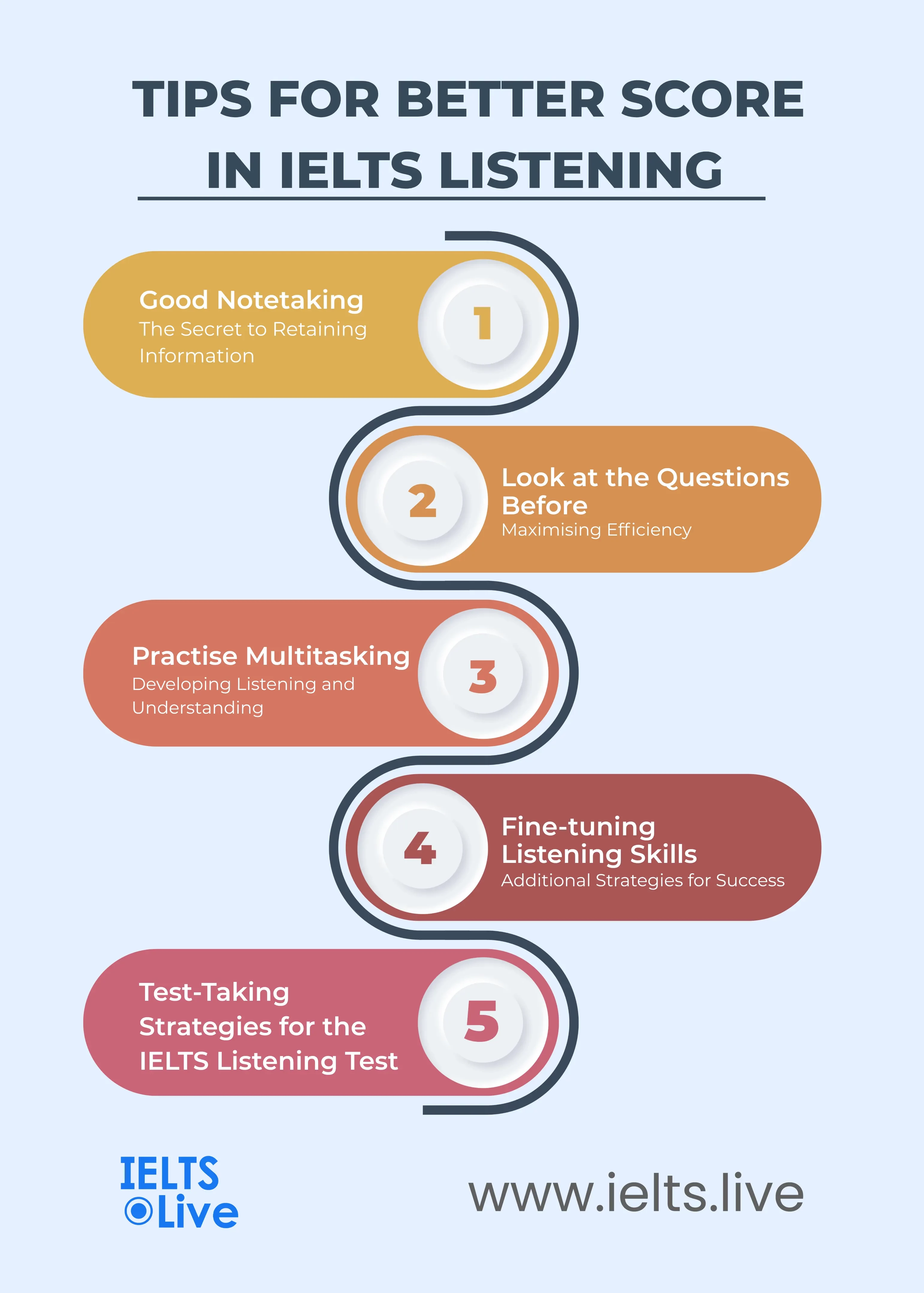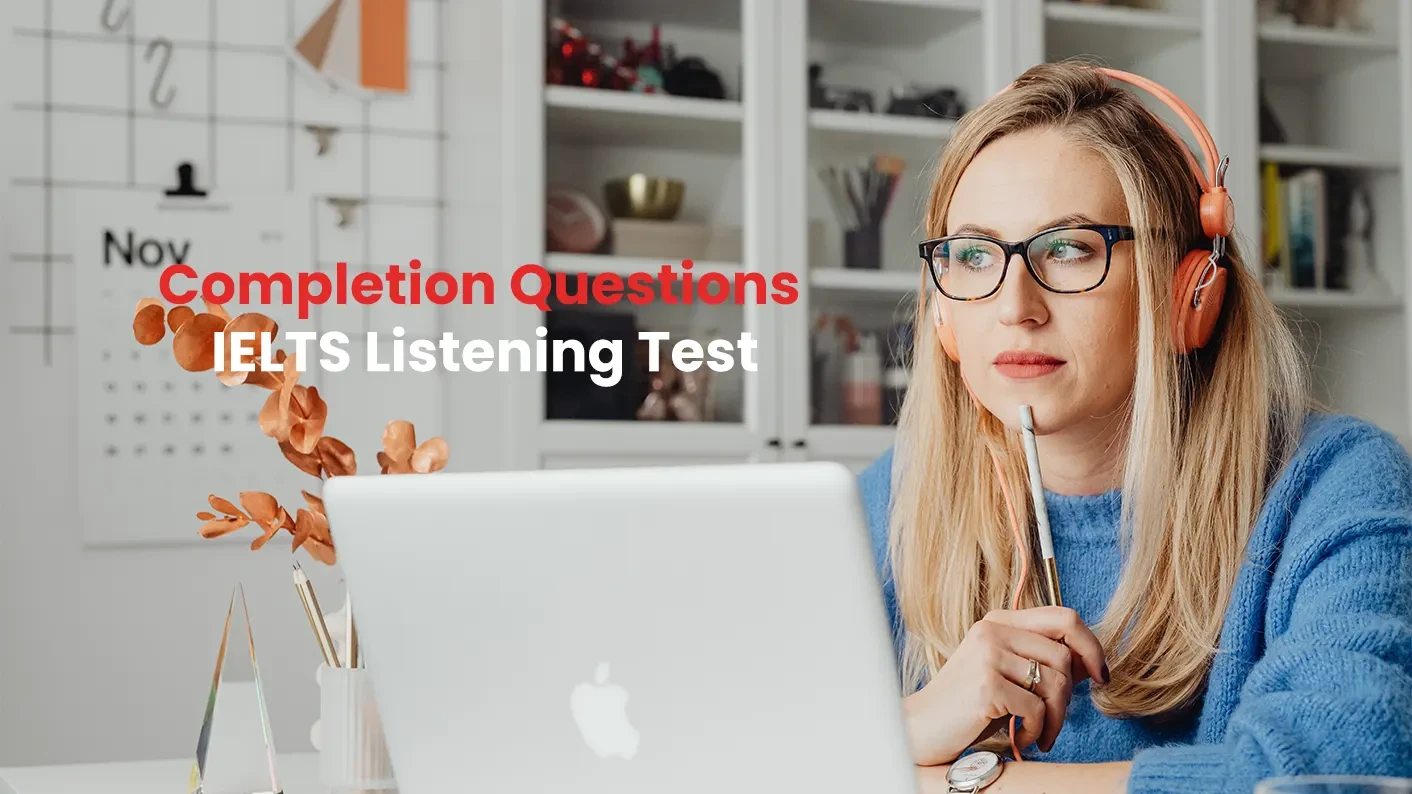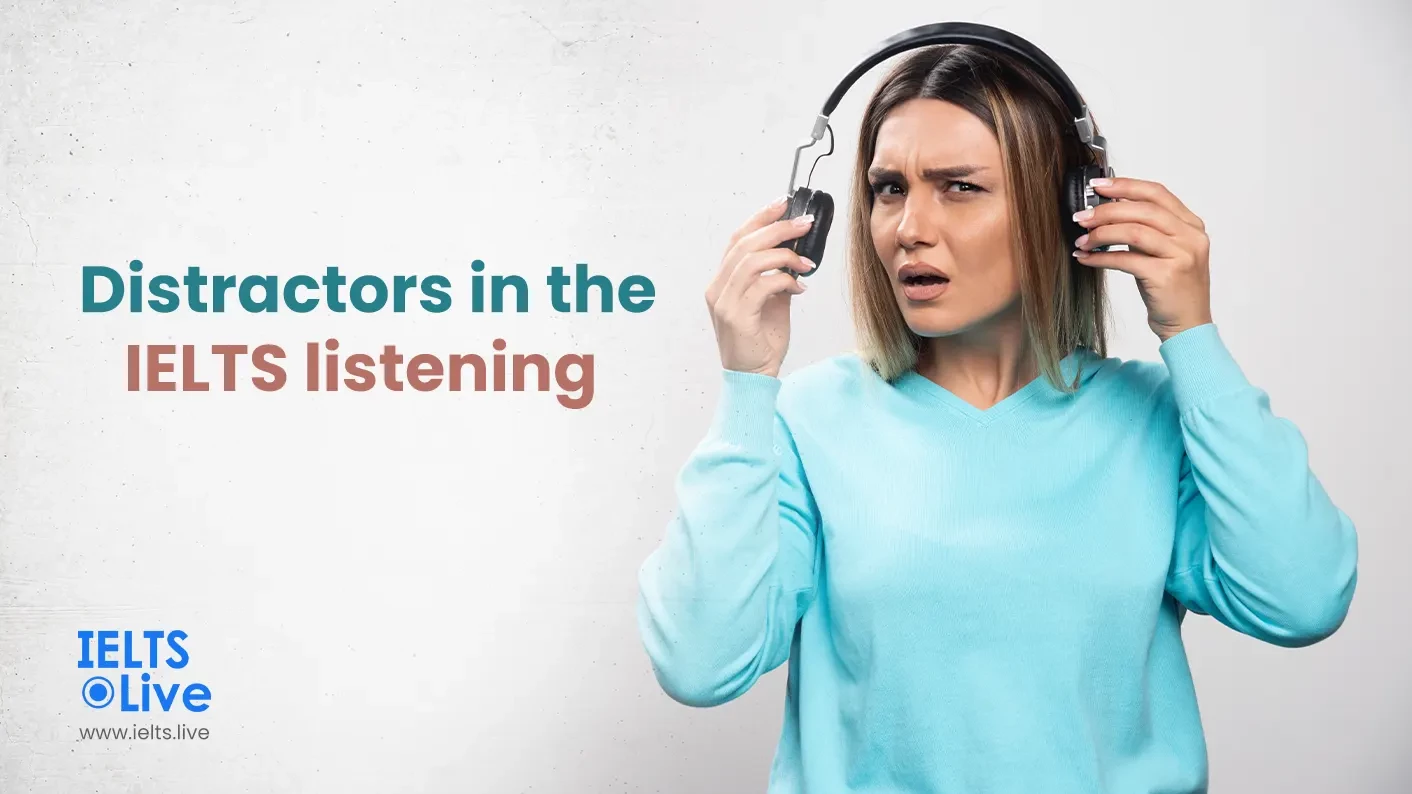
Dear IELTS candidates, Welcome to our blog post dedicated to helping you master the IELTS Listening Test!
You are likely already aware of how important the Listening Test is to your overall IELTS exam score. To ensure your success, we have compiled three crucial tips that will significantly improve your performance.
So let's get started and see how taking good notes, previewing questions, and practising multitasking can boost your IELTS Listening score to new heights!
You may also like: Listen Up! A Comprehensive Guide To Preparing For The IELTS Listening Test
I. Good Notetaking: The Secret to Retaining Information
Effective note-taking is your secret weapon for the IELTS Listening Test. You can improve your ability to take accurate notes and retain important information by developing this skill. When it comes to the IELTS Listening Test, effective note-taking is your secret weapon.
By honing your note-taking skills, you can retain vital information and answer questions accurately. To master this technique, consider the following strategies:
- Create your own system of abbreviations, symbols, and shorthand to help you quickly jot down important points. This will help you develop your shorthand techniques.
- Use keywords and main ideas: Don't try to write everything down word-for-word; instead, concentrate on noting the most important keywords and main ideas.
- Highlight important information: Use highlighting techniques to emphasise crucial details, making it easier to refer to your notes later.
We advise practising exercises that require you to simultaneously listen and take notes in order to improve your note-taking abilities. Take notes as you listen to audio clips, then try to summarise the recordings using your notes. To maximise efficiency, regularly review and improve your note-taking methods.
II. Look at the Questions Before: Maximising Efficiency
Candidates quite often neglect to read the questions before listening to the audio, which is a common error. You can greatly increase the effectiveness of your listening by spending a short time reviewing the questions. Consider the following methods:
- Read the questions quickly to get a sense of the context and to learn what information you should pay attention to.
- Highlight words and phrases in the questions to help you identify them and anticipate the answers as you listen to the audio.
- Pay close attention to the question types and instructions and get familiar with the various question types, such as multiple choice, matching, or completion, and pay close attention to the detailed instructions.
Engage in exercises that involve reviewing sample questions and predicting possible answers to practise this strategy. Listen to the audio recordings and respond to the questions based on your previews. Analyse any mistakes made during practice sessions and fine-tune your previewing strategy as needed.

III. Practise Multitasking: Developing Listening and Understanding Capabilities
Candidates must be able to multitask successfully during the IELTS Listening Test. You can enhance your listening and comprehension abilities by becoming more adept at multitasking. Here's how:
- Engage in simultaneous activities: Put yourself to the test by doing things like exercising or doing household chores while listening to audiobooks. Your brain will become more adept at multitasking after engaging in this practice.
- Watch TV shows, movies, or lectures with subtitles: This helps you develop your comprehension skills by associating spoken words with their written counterparts.
- Talk to native English speakers: Actively participate in conversations with them to hone your listening abilities and learn to adjust to different accents and speech patterns.
To enhance your multitasking abilities, try listening to podcasts and summarising practice episodes while performing routine tasks. Participate in online language exchange platforms that encourage simultaneous listening and speaking practice. Finally, attempt mock IELTS Listening Tests with distractions to simulate real test conditions.
IV. Fine-tuning Listening Skills: Additional Strategies for Success
Beyond the core tips mentioned above, there are additional strategies you can implement to further refine your listening skills:
- Familiarise yourself with various accents and speech patterns: To get a sense of various accents and speech patterns, listen to a variety of English audio sources, including podcasts, newscasts, and TED Talks. Your ability to understand different voices will increase as a result of this exposure, which will also help your overall listening comprehension.
- Improve your vocabulary and understanding of idiomatic expressions: Read English-language books, newspapers, and magazines to increase your vocabulary. Keep an eye out for common idioms and expressions in casual conversations. Use vocabulary-building apps or flashcards to reinforce new words and expressions, which will improve your capacity to understand and comprehend spoken language.
Enhance your concentration and focus: Create strategies to help you focus more during the listening test. Train your mind to remain focused for prolonged periods of time by engaging in mindfulness or meditation exercises. Reduce interruptions during your practice sessions to simulate the testing environment. To enhance your overall listening abilities, actively listen during conversations, discussions, and other activities.
V. Test-Taking Strategies for the IELTS Listening Test
In addition to honing your listening skills, employing effective test-taking strategies can further boost your performance. Consider the following tips:
- Time management: Learn how much time is allotted for each section of the test. Pace yourself appropriately to give yourself enough time to respond to all the questions. Make an educated guess if you are unsure of an answer rather than leaving it blank.
- Review and check your answers: Use any extra time at the conclusion of each section to go over your responses. especially in questions that require multiple choices or completion. Double-check your spelling and grammar. To prevent any unnecessary point loss, double-check that your answers match the relevant question number.
- Strategies for difficult questions: Keep your composure and move on to the next question if you come across a difficult question. Spending too much time on a single question could hurt your performance as a whole. Before going back to the more challenging questions, make an effort to address all the ones you are confident about.
Mastering the IELTS Listening Test is an important step in achieving your desired IELTS score. You can significantly improve your listening skills and increase your chances of success by implementing the three key tips of good note-taking, previewing questions, and practising multitasking.
Furthermore, improving your listening skills, incorporating effective test-taking strategies, and developing concentration skills will all help you perform better. Remember that consistent practice and dedication are required for success in the IELTS Listening Test.
Use the strategies and techniques provided in this blog post, expose yourself to a variety of English accents and speech patterns, and practise on a regular basis. You will be well-prepared to excel in the IELTS Listening Test if you persevere and have confidence. Best wishes for your IELTS journey!










0 COMMENTS